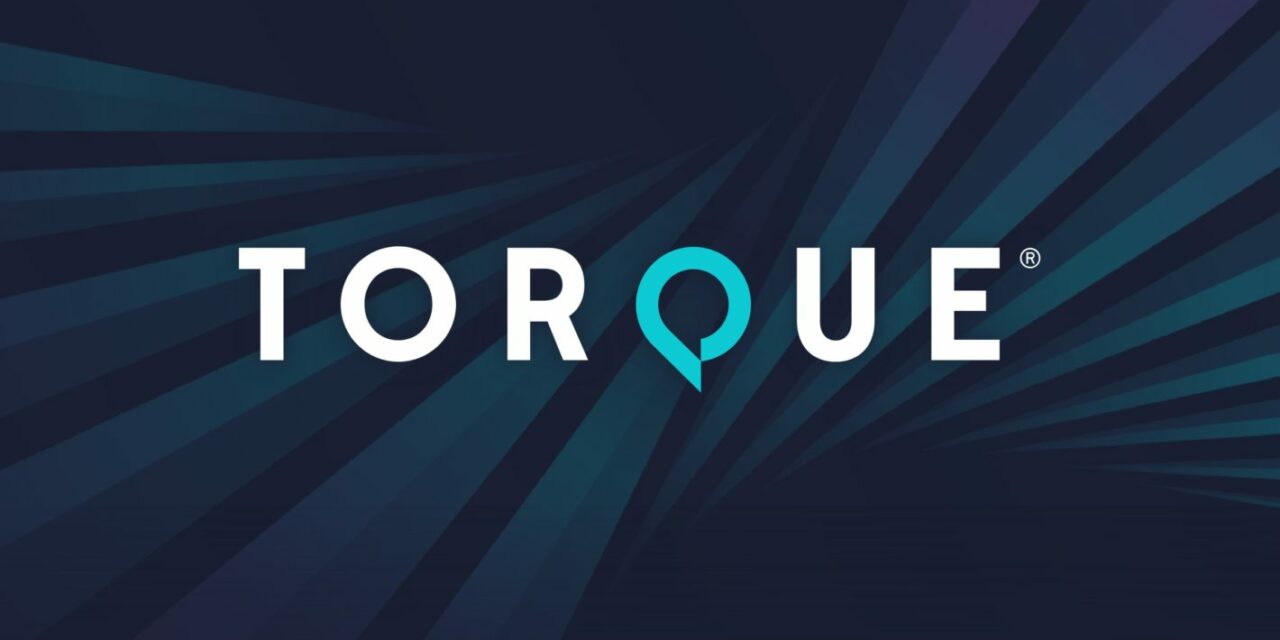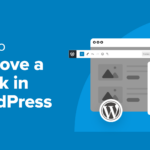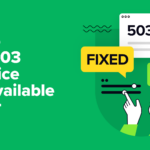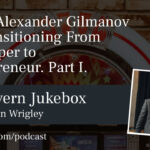Welcome to Press This, the WordPress community podcast from WMR. Each episode features guests from around the community and discussions of the largest issues facing WordPress developers. The following is a transcription of the original recording.
Powered by RedCircle
Doc Pop: You’re listening to Press This, a WordPress Community Podcast on WMR. Each week we spotlight members of the WordPress community. I’m your host, Doc Pop. I support the WordPress community through my role at WP Engine, and my contributions over on TorqueMag.Io where I get to do podcasts and draw cartoons and tutorial videos. Check that out.
You can subscribe to Press This on Red Circle, iTunes, Spotify, your favorite podcasting app or you can download episodes directly at wmr.fm.
Now each month on Press This, we do this thing called Word Around the Campfire where we grab some marshmallows, chocolate, graham crackers, light a campfire, and we get around and we talk about this month’s news. And there’s a lot of news to talk about this month.
I’ll just go on and let you know we’re going to start talking about events, and WordCamp US, we’re also going to cover MySQL. We’re going to talk about what’s coming in WordPress 6.4. We’ve got a lot of other stuff to cover in here, so stay tuned. But to help me out with this episode, I’ve got two special guests joining us.
I’ve got Mike Davey, a Senior Editor from Delicious Brains. Howdy, Mike.
Mike: Hi, Doc.
Doc: And Damon Cook, a Developer Advocate at WP Engine. Damon, thanks for joining us.
Damon: Hi Doc, glad to be here.
Doc: All right. And let’s kick this off with talking about WordCamp US, which, gosh, I think just wrapped up two weeks ago as we’re recording and, there were 2000 attendees gathered at the Gaylord National Resort and Convention Center just outside of DC.
This was the largest WordCamp US ever. Damon, did you have any highlights from this year’s WordCamp that you wanted to bring up?
Damon: I think the common takeaway for me was the hallway track of just interacting with folks, getting to meet face to face. It had been a long time for myself and that was actually the first flagship WordCamp US event I’d been to, besides small local ones and it was a great experience.
It was really great to meet a lot of the community and get some face time.
Doc: You know, what you’re bringing up, I think, was kind of what made this unique. Last year, WordCamp US was capped at 650 attendees, and this year they didn’t have a cap. We had around 2,000 attendees. So it was kind of back to pre-pandemic levels. And I actually appreciated last year as kind of a way to ramp back up to being social and doing these things again.
One of the things that I noticed that had changed just even between this year and last year was social media, like where people were communicating and how they were organizing. And I did a series of interviews with people at WordCamp US. I asked them all sorts of questions, but the one question I asked everybody was about are you still using Twitter or have you found something else?
And there’s a lot of strong opinions about it and there is no consensus on what’s happening. But I think the one thing that I heard from a lot of people was that this event felt large and kind of back to normal. But one thing that they felt was they were like on Mastodon or they were looking on Instagram. They were kind of all other places.
Damon, you’re using Twitter. Did you notice any sort of difference between this year’s event and any others you’ve been to?
Damon: Yeah, that’s interesting. Yeah. I think there’s still a bit of community on Twitter X. I have not tried Mastodon myself, so, I’m missing out on probably a large part of the community in that aspect. So I can’t really speak to that, but yeah, I can see how there is definitely a complexity and diversity in the social media realms these days.
Doc: One of the other things that I was kind of looking for themes this year, and if we were talking about our predictions for WordCamp US in January, I think we would all be talking about AI. Is AI going to have fizzled out or is it going to be all everyone can talk about? And when I went to WordCamp US, what I noticed was it was neither of the two. AI is so common that it’s mundane.
Everybody had a new AI product, but I don’t think anybody was trying to make it their differentiator because everybody else also had some sort of AI onboarding or AI to help you write emails or to write your metadata. They all kind of had it in just a very mundane way.
Not like it’s changing everything, although I guess it has changed everything, but in a way that’s just like, okay, yeah, we’re all using this feature a little bit, and we’re not figuring out how to do this yet. Did you, did you notice anything kind of along that lines about like AI and WordPress?
Damon: At WordCamp US? No, I think just in general though, it’s pretty early certainly there’s some products out there in the WordPress Ecosystem. And I think it’s the early days. I mean, yeah, it’s easy to say, right? I think that the first round, first batch and first inflection point for AI and WordPress is quieting down and still taking shape, I guess in a way, but I didn’t notice any highlights of AI permeating in WordCamp US.
Doc: What I was kind of thinking was just like every company of a certain size has to have an SEO person. I feel like there’s going to be something like that. Every company is just going to have to have that AI person and it’s going to be just sort of there. And we’re still maybe figuring out how it’s going to revolutionize everything and SEO is very important, but like in the same way, I think we haven’t quite upended an industry yet, but it’s getting integrated and almost, kind of, I’m not saying SEO is mundane, but I think y’all know what I’m saying. Where it’s just like, yeah, we have an AI guy and they’re doing this thing and we’re on top of it.
That’s sort of what I got this year.
Damon: Yeah. The use cases though should be interesting.
Doc: And next year, we should see a much different iteration at WordCamp US. Let’s talk about some of the other upcoming WordPress events. WordPress Accessibility Day is coming up.
This is gonna be a free virtual 24 hour conference on WordPress accessibility. And Mike, you were just saying before the show that you signed up for this event, right?
Mike: Yeah, I did. It’s actually something I’m personally fairly interested in, but I’ve only become interested in it, to my shame, in the last couple of years. But one of the presentations I’m really looking forward to is Allie Nimmons is giving a presentation on Accessibility Beyond Blindness. And just the abstract notes that when we speak of web accessibility, our minds can immediately go to optimizing for the visually impaired.
And that’s actually just something that I’ve been thinking over for the last couple of weeks, that that’s how I usually think of accessibility as well, and I think that’s probably a trap, and I need to get beyond that. So I’m really looking forward to that.
And I mean, there’s probably a lot of practical value in it. Seminars like, Is My WordPress Site Accessible? How to Perform Accessibility and Usability Tests. Because a lot of us just don’t know how to test for it. So, I’m looking forward to that one as well. And the nice thing about this conference is, of course, that it is both free and online.
Doc: When I was first hearing about WordPress Accessibility Day, I thought this was a contributor day type event.
But as far as I see, it’s actually more of like a kind of a WordCamp, an online WordCamp about accessibility. Right?
Mike: Exactly.
Doc: Well, cool. I’m excited about that. And the next event that was going to be coming up was WordCamp Rochester, which Mike, you were saying that you had hoped to go to before, right?
Mike: No, I was hoping to go to WordCamp Niagara Falls.
Doc: Niagara. Yes. And okay. And I think this kind of brings us to, oh right, Damon’s going to be going to, but WordCamp Niagara Falls in Canada was one of the events that recently announced or quietly announced that it got canceled along with WordCamp Omaha. So these are two events that are coming up soon or were coming up soon.
And I think this is just kind of an interesting thing. I don’t know if I have any theories as to what’s happening, but it does seem like some of the smaller events are having a hard time getting going this year. Damon you were planning on going, you were going to speak at WordCamp Omaha.
Can you tell us about what you know about what happened to that event?
Damon: Yeah, I think some of the local WordCamps are having a hard time starting back up post COVID. Having organized WordCamp pre-covid back in the day, it is a large effort and takes a team to organize and a lot of moving pieces sponsors, attendees, speakers, filling all those populations is pretty hard to do.
And so I think that’s kind of what has been the case for Omaha. I know that there are several speakers already on the bill and I’m not sure if the organizers had a difficulty getting enough attendees or a full roster of speakers, but it’s unfortunate that they had to cancel. But I think WordCamp Atlanta is happening that same weekend so, that should be another one to keep eyes on.
Doc: Since you were planning on going to Omaha, are you going to pivot and go to Atlanta instead?
Damon: I did submit a speaker application for Atlanta, but I think I had missed the deadline, so I would not be surprised if I don’t even hear back. But another one that’s coming up that I had reach out to me was WordCamp Montreal. And I don’t know that it’s on WordCamp Central yet as an announcement, but they were looking for some preliminary reach out for speakers.
Ao I did submit a talk for them. WordCamps are slowly popping up.But again, I think it’s hard to get all the ducks in a row and get all the interest in everything going again, so we’ll see what happens.
Doc: WordCamp Montreal is going to be online November 8th.
Damon: Okay it is, great.
Doc: At least according to this current update, and that could change. And just as a reminder to anyone listening, you can find these events on central.wordcamp.org. If it’s something kind of unique, like WordPress Accessibility Day, you’re probably just going to want to use Google for that.
And so there are lots of events happening. We’re not trying to say they’re all getting canceled, but it does seem like organizers are having a hard time figuring out, between the large events, like the continental events, like WordCamp Asia and Europe and, uh, and US and some of the others, t seems like we’re having a hard time getting back just to our roots of like small meetups, even in San Francisco, we haven’t had, or in the Bay area, like Oakland used to have WordPress meetups once a month and those haven’t happened.
It’s kind of tough for everybody. I don’t know if it’s lack of marketing or money that helped keep these events going. Or it’s lack of volunteers to help run them. I’m not going to try to make any guesses. It’s just interesting seeing what the space is like right now.
Well, we are going to take a quick break. And when we come back, we’re going to pick up our word around the campfire with Damon and Mike. We’re going to talk about MySQL. We’re going to talk about what’s coming in WordPress 6.4 and a new Advanced Custom Fields survey that just got finished. So stay tuned for more after the short break.
Doc: Welcome back to Press This, our Word Around the Campfire edition, where we catch up with our friends, Damon Cook and Mike Davey. And we are talking about what’s happening in WordPress. We spent the beginning of the show talking about meetups. We just got done with WordCamp US and there’s a lot of other meetups happening and some that aren’t.
Now we’re going to move a little bit to the meat and potatoes of WordPress. Let’s get started with just kind of talking about WordPress 6. 4 updates. Damon, why don’t you tell us about what we can expect from the next version of WordPress as far as what we know so far?
Damon: Yeah, it’s pretty early on, the first beta isn’t even out yet, but there are certainly some features that look like they’ll land for 6.4.
One of the things is the Twenty Twenty-Four theme, which is getting lots of activity. I think it has about 40 plus contributors at this point, and that’s pretty amazing for one of the default themes, and I think it might even be a new record to just see that many contributors on a default theme this early on.
That theme should be neat. It’s got a few different verticals that it’s kind of focused on like a portfolio, a blog, and a photographer, well, I guess that’s the portfolio. But that theme should be a neat result in 6.4.
Another one is the font library, which is still in the early stages, but you can test it out if you get the Nightly of Gutenberg and download that.
But right now they’re focusing on just a small feature set for the font library, so basically, it’s just kind of like a media library, but you’re uploading fonts. And they’re all stored in a fonts directory. So it’s very parallel to the media library. You just drag and drop some fonts into a modal, they’re uploaded and then you can find them in the fonts directory and access them there.
Doc: So if I have an unusual font that I want to use on my site, I can very easily just go in and add it myself to my site. Is that kind of how that works?
Damon: Yes, that’s the idea.
Doc: Neat. That’s cool. Because that’s something I’ve been wanting to do and it’s not hard to do currently, but it’s just one step more difficult than I’ve been able to do. So if it was just like a font library that I could go to, that’s pretty interesting.
And you mentioned the Twenty Twenty-Four Theme, one of the things I was hearing there. Usually they kind of have a target, Twenty Twenty-Three could be just focusing on blocks and how you can kind of like make themes with these sub themes to them. But this one, instead of having something very specific, it sounds like they’re going for everything.
This is going to be a theme that could be used for enterprise or for small businesses. It could be used for writers or artists. There’s a lot going on and it is interesting that they have a lot of people contributing to it. I’m actually on Twenty Twenty-Three for my personal blog and maybe I’ll switch over to Twenty Twenty-Four because it sounds like it would be a fun one to play with too.
Damon: Yeah, test it out early. It’s on GitHub right now. It’s not available yet in the theme directory, but you can certainly test it out, install it, and there’s lots of activity and contribution back to it, so.
Doc: So 6.4 is scheduled for November 7th, and it’s going to be led by an underrepresented, gender release squad. It’s got a lot of exciting stuff going on with it. We will keep you updated as we know more about that, but let’s switch over a little bit to MySQL or MySQL’s End of Life for 5.7. Mike, why don’t you tell us about that?
You had a great write up on it on Delicious Brains. I’d love you to recap here.
Mike: Thanks, Doc. I won’t be able to solve if it’s MySQL or MySQL, I mean, just as an example, I walked around, uh, calling URLs, URLs for years and not one person corrected me, so I’m not a good guide to how things are pronounced.
But I do know there are some changes you need to watch out for if you’re updating a WordPress site, from MySQL 5.7 to MySQL 8.0. And part of the reason for that is because 5.7 is reaching its end of life in October 2023 so it won’t be supported anymore. So a lot of people are going to be having to upgrade their sites. Just a few things to watch out for, like 5.7 supports some data types that became obsolete actually in previous versions, but they are simply no longer supported in 8.0.
In a similar vein, support for partition tables using a storage engine without native partitioning support was deprecated in 5.7, but it’s completely removed in 8.0. The only supported storage engines in 8.0 are, that have native partitioning handlers are NODB and NDB, and partition tables using other storage engines won’t be available after you update.
You need to either convert the table or remove the partitioning before you make the update, or you won’t be able to use the table for anything. Like, I won’t be able to access it.
There’s a few other things you need to watch out for. There’s some new reserved keywords. They weren’t previously reserved but they are now, which could cause keywords that you’d previously used as identifiers to become illegal. There is a list of reserved keywords that they’ve got. But on the other hand, you also get improved security, like the Default Authentication plugin provides more secure password hashing than the previous one.
According to the test results I’ve seen, there is actually quite a bit of enhanced performance and it’s more scalable. Like test results were showing fairly significant speed increases. The example query was to retrieve column names for all NODB tables. The tests ended up executing hundreds of times faster on 8.0 compared to 5.7, um, and I’ll pop in a link at some point to see if I can find those test results.
Doc: I have a dumb question here. So we don’t know how it’s pronounced, but I’m going to keep saying MySQL, is an open source,database management system. When I go to their site, when I go to mysql.com, it feels kind of like corporate, like there’s buy it here and stuff like that.
I just kind of don’t quite understand this organization. And I guess the thing that’s sticking out to me is they are really good about saying, Hey, we’re going to stop supporting this or whatever, where WordPress has kind of infinite back support, maybe not infinite. I’m sure Damon knows how far we go back, but it is kind of interesting kind of comparing this other open source projects and just kind of seeing how different it feels and how transparent they are for better or worse with like, Hey, we’re going to stop supporting this. So you need to, you need to move and they give you six months notice, or I’m not sure how far, maybe even a year notice.
That’s just kind of interesting to compare WordPress to MySQL, which are two different things, but they’re both open source projects and seeing how they manage themselves is interesting.
Mike: Yeah. Well, I mean MySQL became a part of Oracle in 2010, I believe. So I think Oracle probably has had a fair amount of influence on how it presents itself to the world and just how they conduct everything.
Doc: That does explain a lot. That explains that it’s still open source, but it’s part of Oracle and I can get that Oracle vibe on here. So, we are going to wrap up this segment and we’re going to take a short break. And when we come back, we’re going to wrap up the show with a bit of a survey that ACF took.
So stay tuned for more after this short break.
Doc: Welcome back to the Word Around the Campfire edition of Press This. As you can see, the campfire is slowly starting to fizzle. It means it’s time for us to pack up, but before we do, Mike, why don’t you tell us about the recent ACF survey that happened?
Mike: Sure thing, Doc. We started this fairly early in 2023, but we’ve only recently published the results now. It surveyed about a little over 2,000 ACF users, and just from the results of the survey, we know over 80 percent of those folks were developers far outweighing any other category.
The next highest was designer at a little under 8 percent, so almost 10 times as many developers as any other category. And it’s actually probably a bit higher than the figure we give on the website of 81 percent because we had a little under 3 percent answer Other, and when we unpacked those answers, we found a lot of them were combinations of the other categories, very often with developer in there, such as developer/business owner or designer/developer.
That really does show that most of the people, not only is ACF a developer’s tool, which we all knew, but most of the people taking this survey are, in fact, working developers. Some of the more interesting things, you can hit up all the results on the ACF website.
There’s a lovely infographic that sort of lays out a lot of the top line stuff, and then we get into a bit of the analysis down below. But there’s some things that aren’t there, necessarily. For example we had a question about how often to use the following ACF fields.
And I’m really sure this was a bit of a slog for all the folks who completed it in the survey, because we asked them to rank how often they used each and every single field. Never, sometimes, frequently, or always. And the results on the ACF site, only show the rankings of the always column.
And it’s pretty much what you’d expect. The top three are text, text area, and image. But when we unpack some of those results, though, it really highlights just how tremendously flexible ACF is, and how people are using it in a lot of diverse ways. We have fields like password. That a little over 56 percent of respondents say they never use it. And about five and a half percent who use it on every build. OEmbed is another one. Like, I think 36 percent or so people never use it. And yet 8.9 percent of people always use it. Those percentages are pretty far apart. But there’s a lot of other fields with closer spreads.
We’ve got the gallery field. 22 and a half people never use it. 15 percent always use it. Tab fields. 16.9 percent, never. 25.16, always. When we look at that sometimes column, remember it’s Never, Sometimes, Frequently, and Always. So Sometimes is only the second one. You sometimes use it.
The only fields that scored less than 10 percent of the respondents saying they sometimes use it are ones with absolutely enormous numbers in the Always column. There were just three that actually had less than 10 percent text, text area, and image. And the repeater field, which by the way is an ACF Pro field. The repeater field only got 10.53 percent of Sometimes use it. But on the other hand, it’s Always ranking is 52.98 percent. And there’s a cluster of a few fields that got 15 to 19 percent in the Sometimes, and all of those have always rankings between 35 and 50. It’s really interesting just because it shows that all of those fields are being used.
There is no field in ACF’s over 30 fields that someone, like a fairly significant portion of developers, don’t consider essential.
Doc: Well, I think that’s a good spot for us to stop there, but it sounds like there’s a lot more to cover on that. If people want to learn more about the ACF survey or Mike, what you’re writing about in general, where would you send them?
Mike: Well, for the ACF survey, I would hit up WP_ACF on Twitter, and follow there. I you want you can follow me on Twitter. And of course, you can always go to advancedcustomfields.com and the survey results should be fairly easy to locate.
Doc: Well thanks for joining us and Damon, I know that we still didn’t get around to talking about 6.4’s block hooks. And I know you have a lot to say about that, but luckily people can catch you at WordCamp Rochester, right? To hear more about that.
Damon: Yeah, that’s September 30th. I’ll be presenting on the 6.4 features. So yeah, I’ll be talking about Blockhooks
Doc: where else can people find you online?
Damon: Follow me on Twitter. That’s the best place to keep track.
Doc: Well, that’s it for this week’s episode of Press This, our Word Around the Campfire edition. I want to say thanks again to Damon Cook and Mike Davey for joining me today. Next week we’ll be talking to Carmen Johnson about what developers need to know about MySQL’s end of life. And how they need to be prepared for it. And maybe the benefits even of upgrading as well. So stay tuned for that episode coming next week.
Doc Pop: Thanks for listening to Press This, a WordPress community podcast on WMR. Once again, my name’s Doc and you can follow my adventures with Torque magazine over on Twitter @thetorquemag or you can go to torquemag.io where we contribute tutorials and videos and interviews like this every day. So check out torquemag.io or follow us on Twitter. You can subscribe to Press This on Red Circle, iTunes, Spotify, or you can download it directly at wmr.fm each week. I’m your host Doctor Popular I support the WordPress community through my role at WP Engine. And I love to spotlight members of the community each and every week on Press This.











